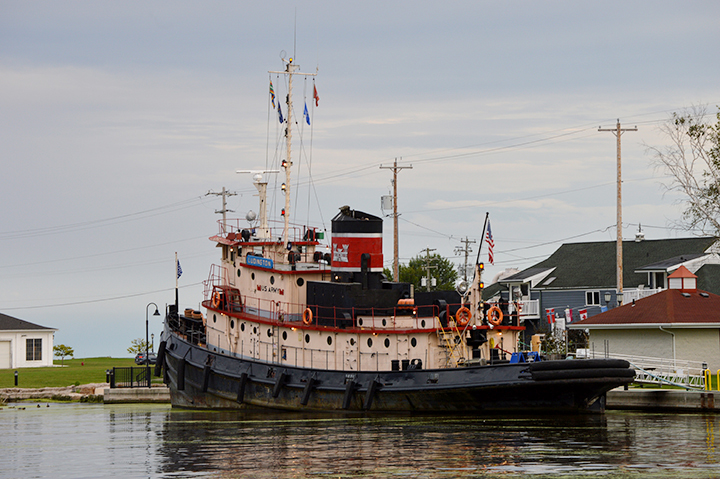
Tug as museum ship,
Ludington.
Manitowoc, Sep 12, 2021, Image 21-0513
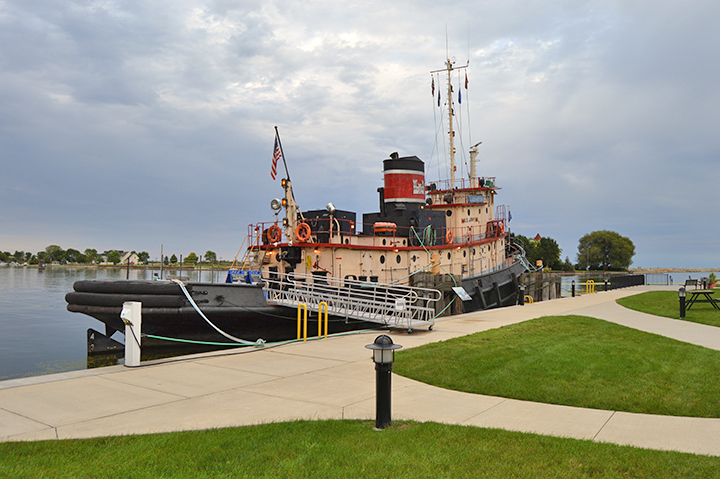
Tug
Ludington was built in 1943 as the
Major Wilbur Fr. Browder (LT-4),
at the Jacobsen Shipyard in Oyster Bay, New York.
Manitowoc, Sep 12, 2021, Image 21-0518
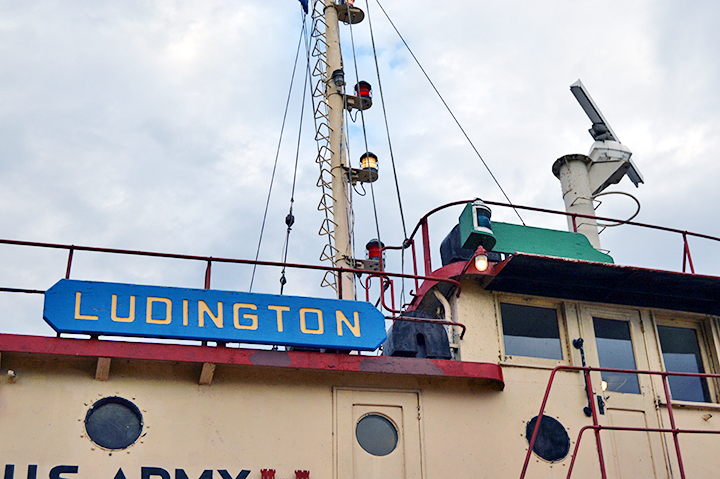
This tug participated in the D-Day invasion at Normandy,
towing ammunition barges across the English Channel.
Manitowoc, Sep 12, 2021, Image 21-0526
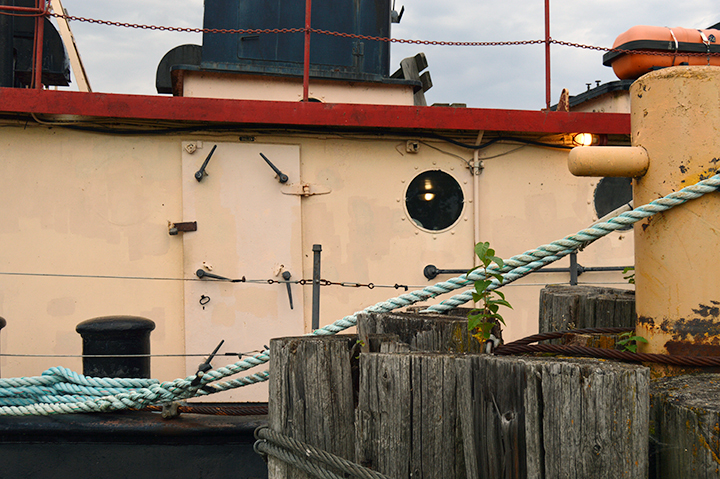
In WWII, the
Browder was equipped with two 50-caliber machine guns.
Manitowoc, Sep 12, 2021, Image 21-0522
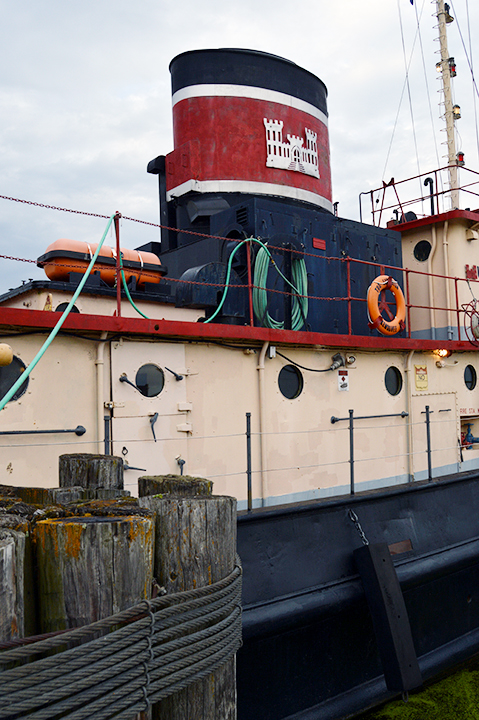
The
Browder was renamed in 1947 as the tug
Ludington,
and assigned to Kewaunee, Wisconsin.
Manitowoc, Sep 12, 2021, Image 21-0521
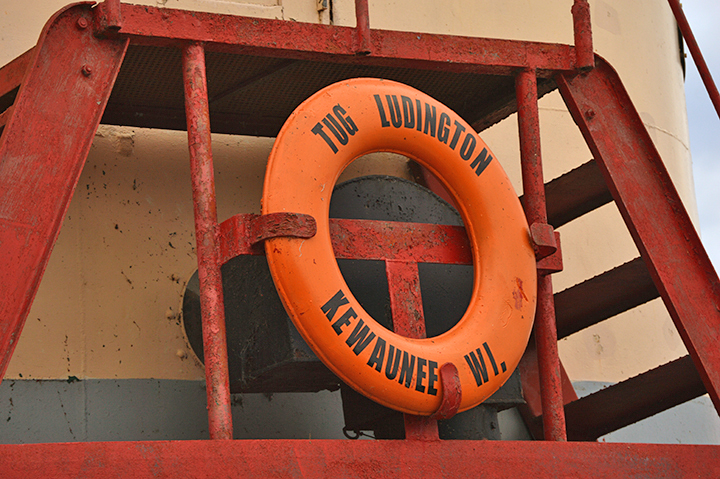
Ring buoy from days as the
Ludington, homeported in Kewaunee.
Manitowoc, Sep 12, 2021, Image 21-0528
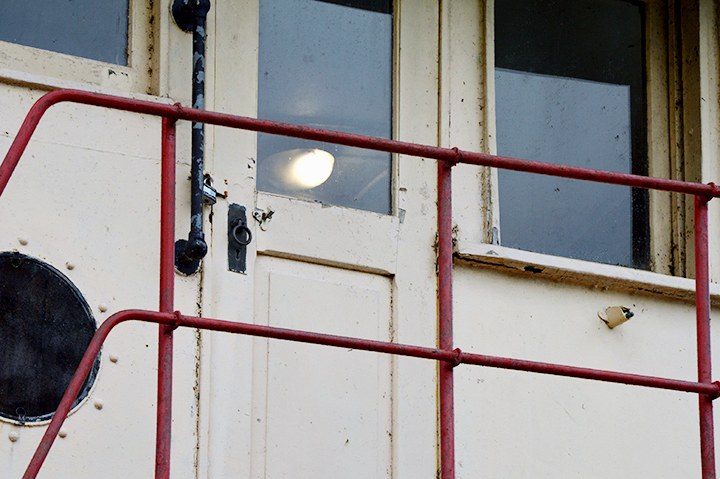
They leave the light on for you. Tug
Ludington.
Manitowoc, Sep 12, 2021, Image 21-0529
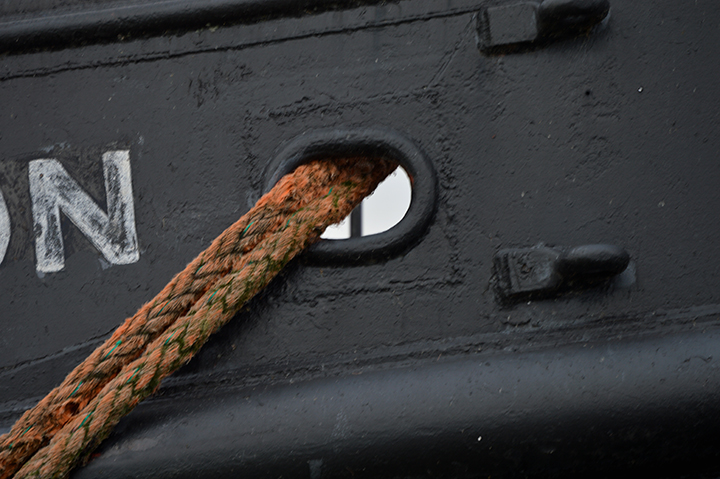
Tug as museum ship,
Ludington.
Manitowoc, Sep 12, 2021, Image 21-0532
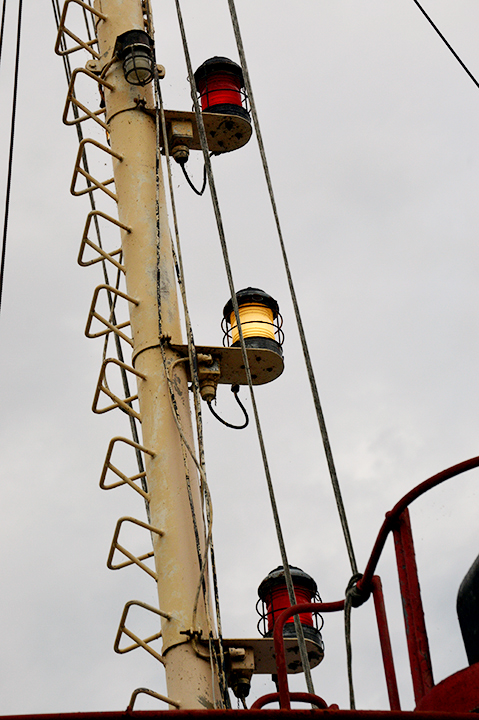
Mast and navigation lights on tug
Ludington.
Manitowoc, Sep 12, 2021, Image 21-0530
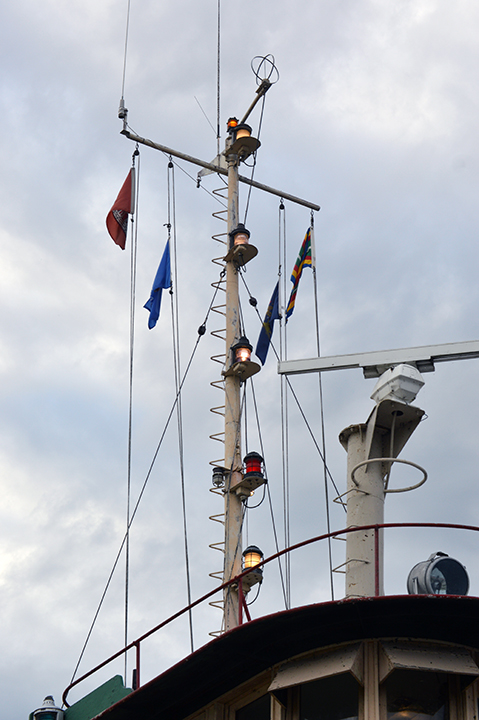
Wide view of mast on tug
Ludington.
Manitowoc, Sep 12, 2021, Image 21-0533
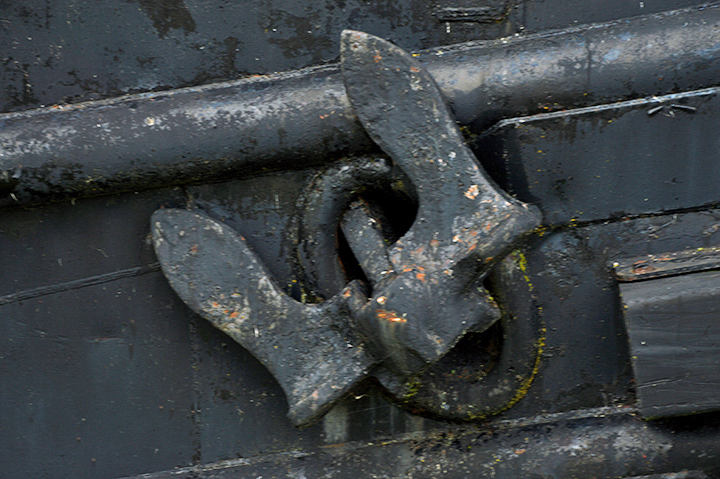
Anchor on starboard side of tug
Ludington.
The
Ludington is 115-feet long, by 26-feet wide, with a draft of 14.3-feet of water.
Manitowoc, Sep 12, 2021, Image 21-0536
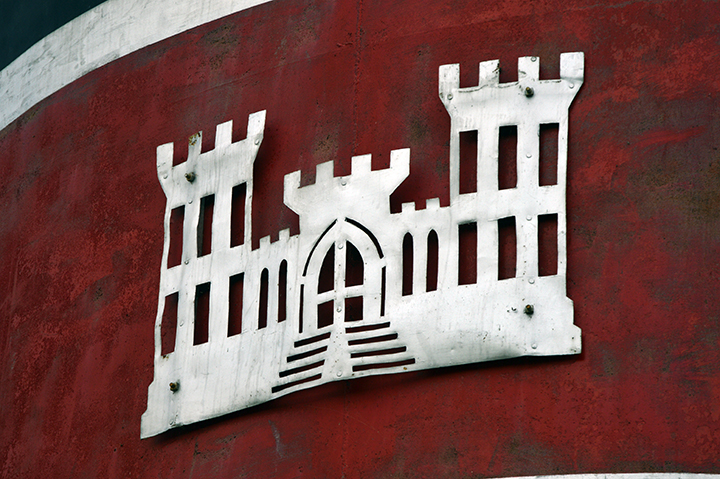
The
Ludington operated with a crew of fourteen for the U.S. Army Corps of Engineers.
As a naval tug it carried a crew of 24 during the war.
Manitowoc, Sep 12, 2021, Image 21-0527
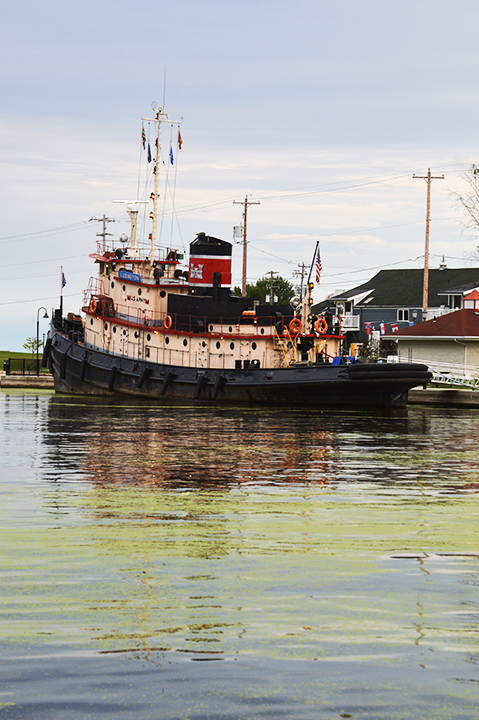
The
Ludington is pwoered with an 8-clylinder engine with 1,200 HP.
The tug has a capacity of 40,000 gallons of fuel and 2,000 gallons of water.
Manitowoc, Sep 12, 2021, Image 21-0515


















